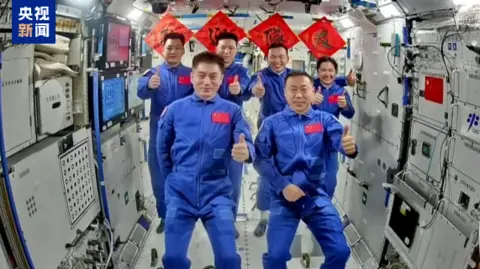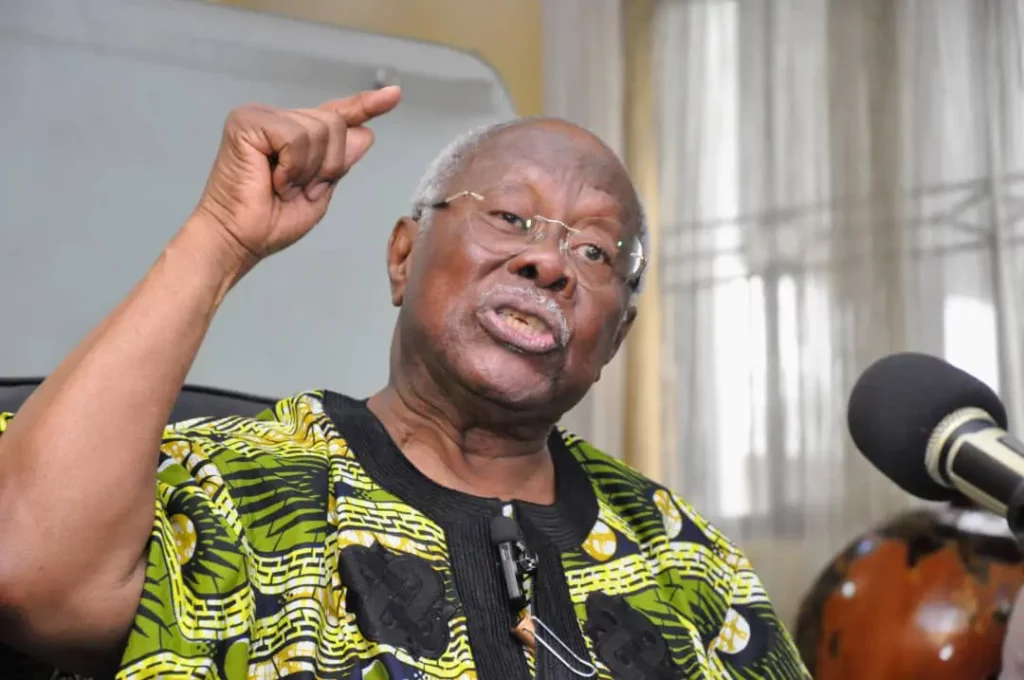A Chinese spacecraft carrying a three-person crew, including the country’s first female space engineer, successfully docked after a journey of over six hours. The crew will spend six months on China’s homegrown Tiangong space station conducting experiments and performing spacewalks as the nation builds experience for its goal of landing on the Moon by 2030.
China celebrated the launch of Shenzhou 19 as a “complete success.” This mission is part of an ambitious year in space exploration, with 100 launches planned as Beijing aims to surpass its rival, the United States.
The BBC, given rare access to the Jiuquan Satellite Launch Center in Gansu, reported from just over a kilometer away as the spacecraft blasted off, lighting up the Gobi Desert with a dramatic display of flames and noise. Hundreds of supporters lined the streets, cheering the taikonauts—China’s term for astronauts—on their journey.
The Shenzhou 19 crew met with three other astronauts from the Shenzhou 18 mission at the Tiangong space station. The Shenzhou 18 crew is set to return to Earth on November 4.

President Xi Jinping has previously expressed China’s space aspirations, stating that “to explore the vast cosmos, develop the space industry, and build China into a space power is our eternal dream.” However, some in Washington view China’s rapid progress as a potential threat.
Earlier this year, NASA chief Bill Nelson suggested that the US and China are effectively in a “race” to return to the Moon, voicing concerns that Beijing’s space efforts could lead to territorial claims. He also pointed to a link between China’s civilian space program and military objectives.



























